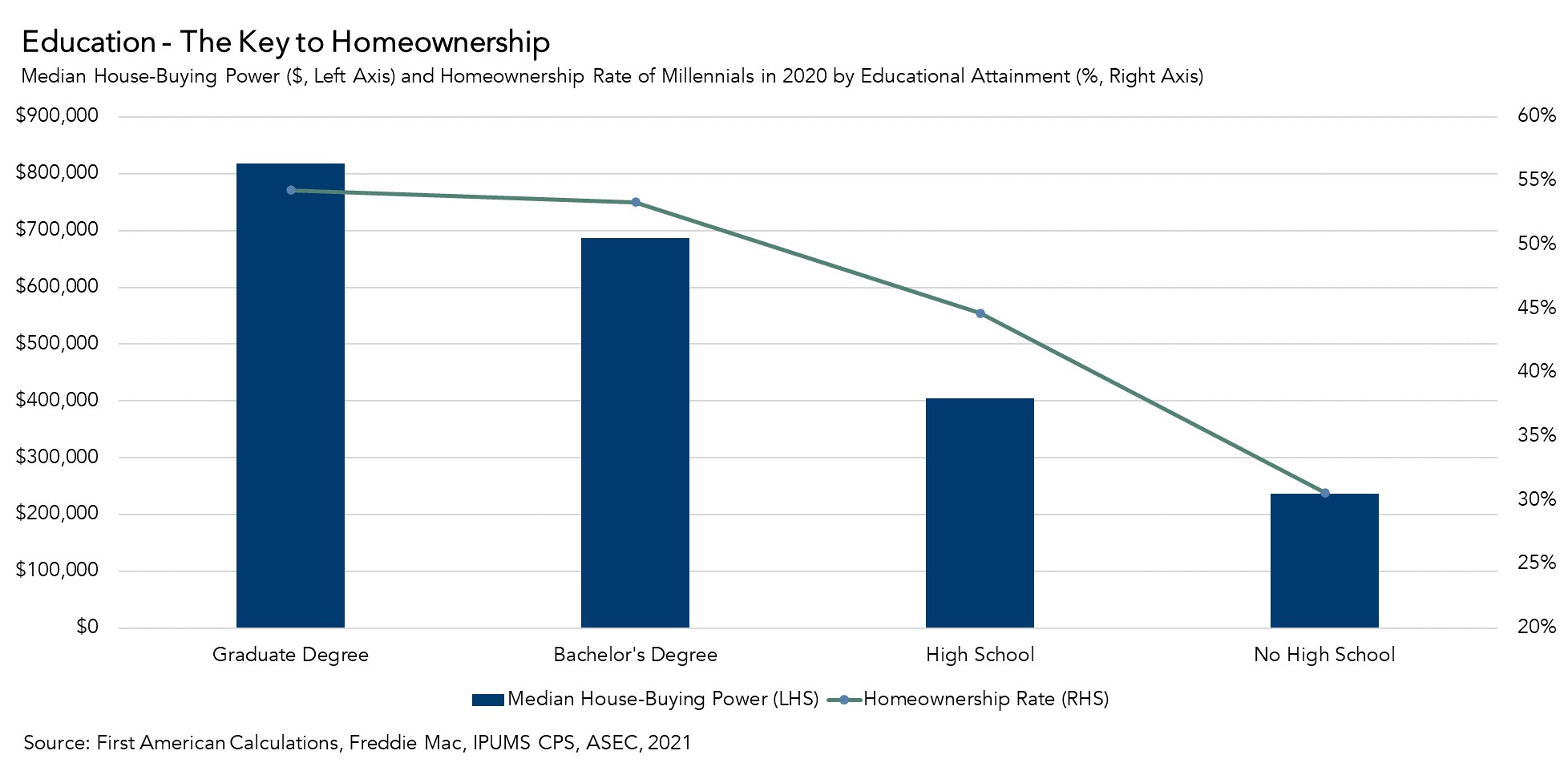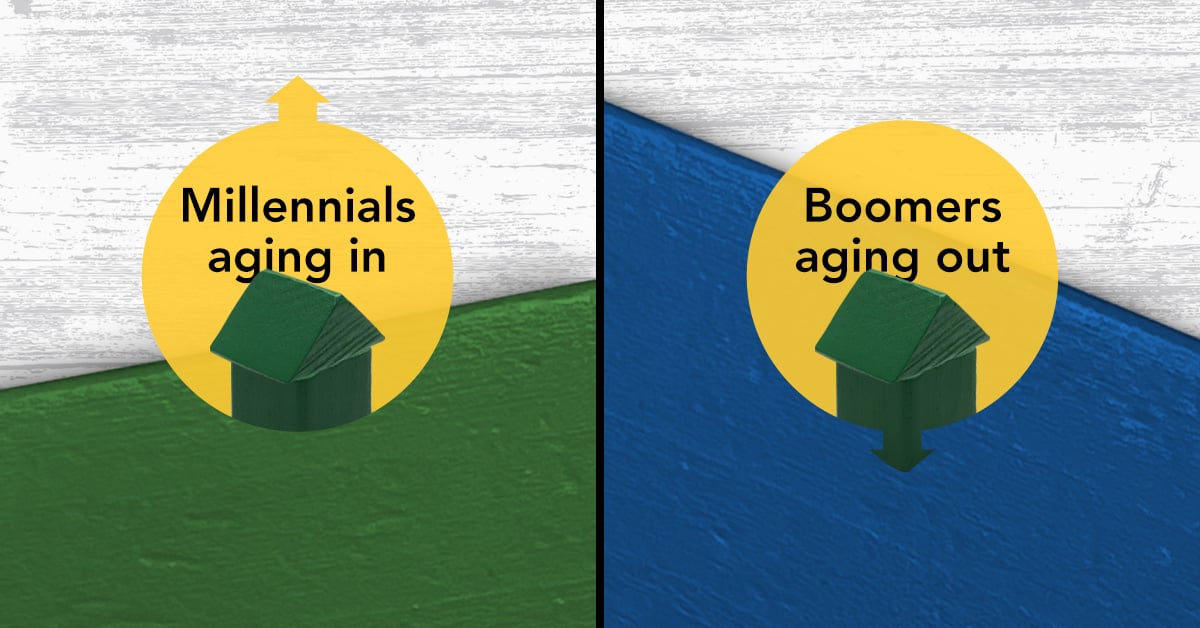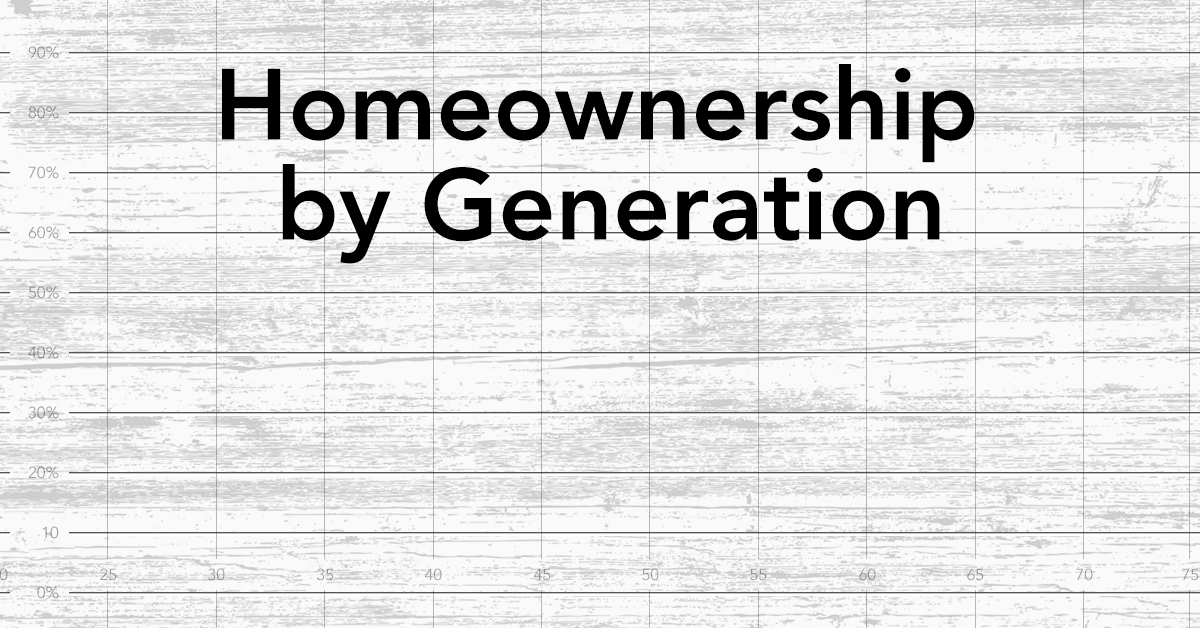We’re often told that education is the key to a more secure financial future. Most people spend at least 12 years of their lives as students and even more if they pursue higher education. But does more education equate to increased earning potential? And, if so, does the increased earning potential translate to a greater likelihood of becoming a homeowner? These are empirical questions that data can help to answer.
“Millennials’ pursuit of higher education is good news for the housing market, because it seems that education is not only the key to greater earning power, but also to homeownership.”
Does More Education Equate to Higher Earnings?
If education is the key to a more secure financial future, then millennials are on the right track. The millennial generation, those between the ages of 24 and 39 in 2020, is the largest living adult generation. Many millennials are well into their careers, while some are recent college graduates, and others still in school. According to our research, millennials are the most educated generation in American history.
Approximately 37 percent of millennials have a bachelor’s degree or higher, compared with 31 percent of Generation X and 14 percent of baby boomers when they were the same age. Millennials also earned their bachelor’s degrees much quicker than previous generations. By their mid-40s, 30 percent of baby boomers had a bachelor’s degree or higher, Generation X reached that mark by their late 20s, but millennials achieved the educational milestone by their mid-20s. The trend toward more education earlier in life is clear, as Generation Z is now on track to outpace the millennials.
But, education takes time and money. Millennials have delayed key lifestyle decisions in favor of investing in the pursuit of education, pushing marriage and family formation to their early-to-mid 30s. Previous generations made these lifestyle choices in their 20s. Marriage and family formation are two of the most powerful motivations for homeownership, so these delayed lifestyle choices tend to also delay the desire for homeownership. However, when the time comes to become a homeowner, the earning power benefits of higher educational attainment are real.
The Investment Pays Off
In 2020, millennials with a bachelor’s degree had a median household income of $101,000, while those with at least a graduate degree had a median household income of $120,000. These levels are significantly higher than the median household income of millennials with just a high school degree (or some college), at nearly $60,000. The income difference is even more stark when compared with millennials with no high school degree, who have a median household income of $35,000, demonstrating the earning power benefit of greater educational achievement.
But when it comes to housing affordability, household income is not the only consideration. House-buying power is how much one can buy based on changes in income and interest rates. As with income, house-buying power increases as educational attainment increases, but has also benefited from declining mortgage rates. The average 30-year, fixed mortgage rate decreased from 3.94% in 2019 to 3.11% in 2020, boosting the house-buying power for millennials across all educational attainment levels.
Even though the boost in house-buying power has positive implications for millennial homeownership, the homeownership rate among millennials still varies across educational levels. The homeownership rate for millennials with a bachelor’s degree in 2020 was nearly 9% higher than those with just a high school degree. Even when comparing millennials at the same age of 30, those millennials with a bachelor’s degree have a homeownership rate that is 5.5% higher than those with just a high school degree.

The importance of education to homeownership has only increased over time. Our Homeownership Progress Index shows that the impact of educational attainment on the likelihood of homeownership has more than doubled in 20 years. In 2000, the difference in the homeownership rate between those with a high school degree and those with a college degree was 3.7%. By 2020, this gap almost doubled to 6.9%. Millennials’ pursuit of higher education is good news for the housing market, because it seems that education is not only the key to greater earning power, but also to homeownership.



